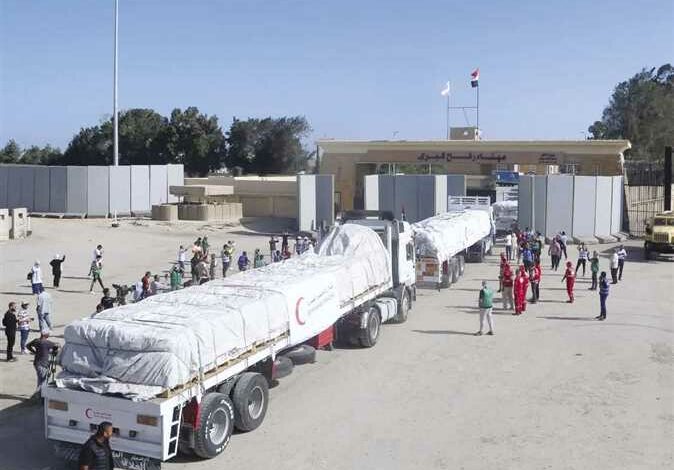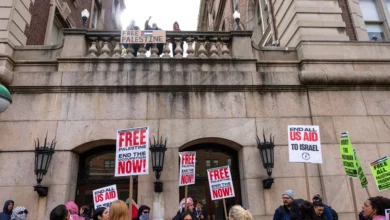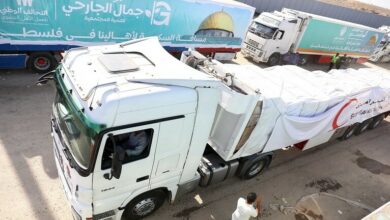
The head of the Egyptian State Information Service (SIS), Diaa Rashwan, responded to claims made by Israel’s defense at the International Court of Justice in The Hague regarding the Rafah border crossing.
During a telephone interview with Al-Qahera News Channel, Rashwan assured that the Rafah crossing is open at all times, but Israel’s siege of Gaza is preventing the entry of aid.
“Let Israel allow aid to enter from the Rafah crossing directly into Gaza Strip and the south and north,” he said.
Rashwan explained that because Israel has obstructed the transfer and inspects aid in Kerem Shalom border crossing, and transfers aid to Palestinian cars, Egyptian trucks are forced to go directly to Kerem Shalom, and then transport it directly to parts of Gaza, without unloading it into Palestinian trucks for achieve faster access.
Israel’s ‘confusion’
Israeli’s Prime Minister has told the world that Israel is the victim, and the Israeli defense team at the International Court of Justice is doing the same thing, but there is severe confusion in the Israeli media, he noted.
Rashwan said that the reason for this is the trial before the ICJ, because it is the first time that Israel has been accused before an international judiciary, and not a local, Arab, or regional judiciary.
Israel and its senior officials have stressed the necessity of blockading Gaza and preventing the entry of all essential aid, especially fuel, he noted, but now acknowledges that cutting off aid and blockading Gaza is negative.
Rashwan stressed that Israel cannot evade its crimes by blaming Egypt, as there are six other crossings other than the Rafah crossing and the Philadelphia Corridor which overlook Egypt, all of which are from the Israeli side – the main artery for trade, from which Israel was earning US$300 million.
He continued that if Israel claims that Egypt is closing Rafah crossing, then it should open its own crossings.
The Palestinians pay for every single grain of rice that enters them, he added.




